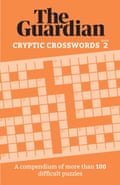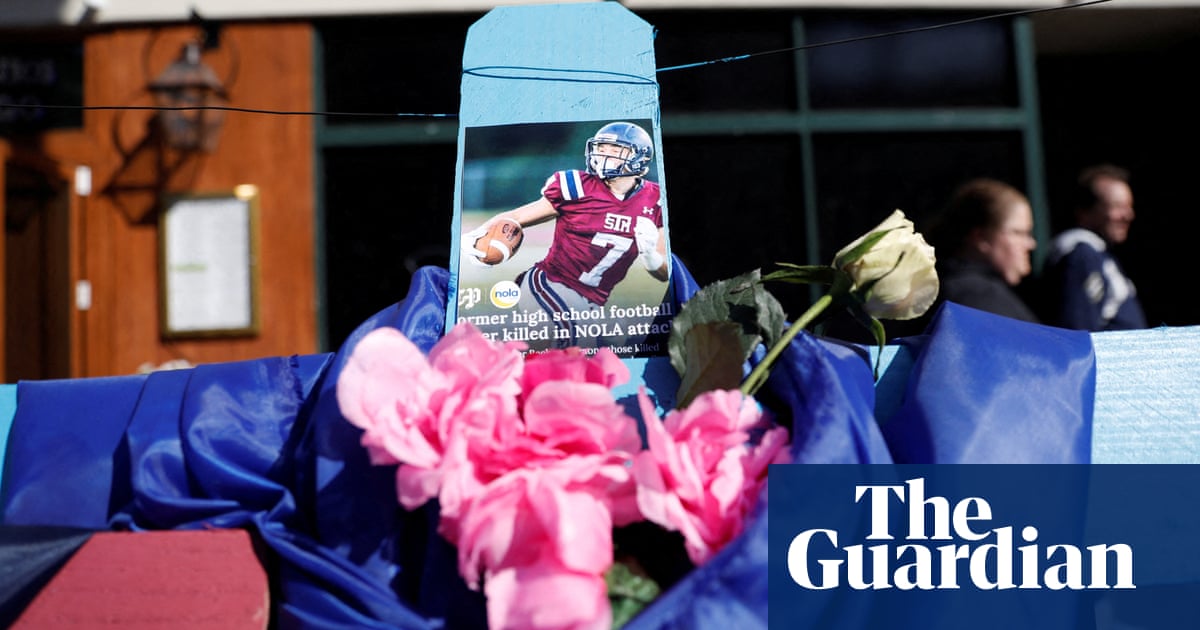The Genius is the Guardian’s toughest crossword. Setters get inventive: in February’s Genius, by Qaos, the grid turned out to be a representation of the end of The Shawshank Redemption.
Still, the puzzles honour the most fundamental understanding between cryptic setter and solver: each clue will be made up of, in either order, a definition of the answer and some wordplay (an anagram, say, or a soundalike) of that same word.

Not so with October’s, a puzzle by Twin with special instructions:
Each answer is clued by wordplay only. Two symmetrically opposite answers give the theme of a sketch, and the answer to the question: who performed it?
The solver might not immediately grasp what’s going on in that first sentence, until he or she gets to a clue like nine down. Decode it and you know that you need to write in a jumble of the letters TRAPDE: but will that be PARTED, PRATED or even PETARD?
Enlightenment is offered by the sketch mentioned in the preamble. The first and last across entries are TWO RONNIES and MASTERMIND, bringing to mind a much-loved piece of comedy written by David Renwick:
RONNIE: Your name please?
RONNIE: Good evening.
RONNIE: This time you have chosen to Answer the Question Before Last each time. Is that correct?
RONNIE: Charlie Smithers.
Ha ha, I chuckled to myself, imagine if this puzzle was trying to do just that: to make each clue work as wordplay for its own entry but also to give a definition of the next. I immediately dismissed the notion as impossible.
But – unbelievably – that is exactly what Twin did. The TRAPDE ambiguity is resolved by looking at the previous clue …
8d Top synonym for go?
[ wordplay: type of top and a synonym for ‘go’ ]
[ TEE + PEE ]
… which gives us PARTED but is also the wordplay for its own answer TEEPEE, which in turn is defined in seven down as “Around North America, perhaps a Canadian one’s skinned dwelling?” but of course that clue is in turn also wordplay for UNANIMOUS … and so on.
On the quizshow Richard Osman’s House of Games, we in the questions team recently introduced a round inspired by the same sketch called Previously on House of Games. So I know that assembling this kind of chain is … not easy. And that’s the case even when the match between question and previous answer need only be that there’s a silly incongruity. To do that while following the rules of wordplay, with no weak links? That’s why the puzzle is called Genius.
I asked Twin if there were moments where he thought it couldn’t be done. He told me, delightfully, that the only doubt was whether it could be done well. He promptly used a random word generator to create two words – CLINIC and RUNG – and in less than a minute wrote a clue – “Called, likely if needed in conversation, primarily?” – which gives wordplay for the first and a definition of the second: “Not difficult to create, and certainly not much fun to solve.”

And what might solvers have missed? Well, every clue is a question. THATCHER, AUNT, TARANTULA and PEERAGE appear in the puzzle just as they do in the sketch. And the final clue, which has no others to define, instead works as a paraphrase of “I’ve started so I’ll finish.”
Twin urges us all to seek out other Two Ronnies sketches, especially the crossword one and remarks that: “The sad thing about being a crossword setter is that it’s very rare to witness anyone actually solving your puzzle, so I’d be fascinated to know when the theme clicked for solvers.”
And in our cluing conference for YAP: the runners-up are cousin-clues Falconbridge’s “Setters’ call for wage hike?” and Notgethithatonharry’s “Talk about payback”; the winner is the stark “Little dogs do it inside – why apologise?”
Kludos to PlumNorm4l. Please leave entries below for our next challenge: how would you clue RUNG?
188 Words for Rain by Alan Connor is published by Ebury (£16.99). To support the Guardian and the Observer, order your copy at guardianbookshop.com. Delivery charges may apply

.png) 1 month ago
6
1 month ago
6













































